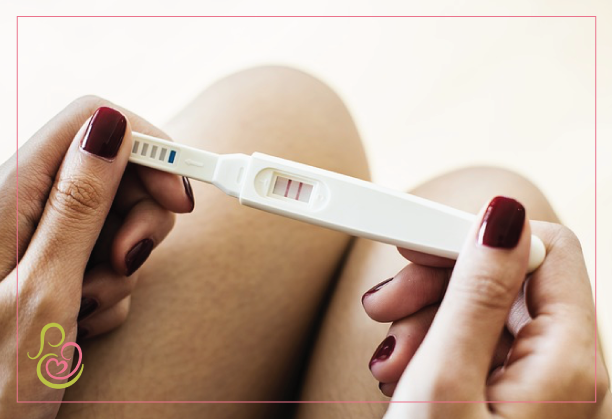It’s not something anyone thinks will happen to them, but each year, roughly 50% of all pregnancies in the United States are unplanned. More than three million American women are getting pregnant who weren’t planning on it.
It’s so important to be as prepared as possible for the unexpected and to know what to do if it happens to you.
Check into your healthcare
Pregnancy isn’t cheap. Doctor’s visits, ultrasounds, blood work. There’s a lot to pay out of pocket.
Find out what your insurance policy covers. Make sure to let them know about the situation and find out how to make a claim. If you don’t think your coverage is adequate, now is the time to shop around.
Also, find out everything your insurance covers. Some can help with car seats and breast pumps for mothers who intend to breastfeed.
Make a doctor’s appointment
Once you’ve taken the home test and checked with insurance, it’s time to schedule the first doctor’s visit. You can find out how far into the pregnancy you are. If you plan to keep the baby, it’s important to discuss medications you are on, health concerns like diabetes, and start discussing the next steps.
Time for a health check
It’s time for a lifestyle change. First, things like drinking alcohol, smoking, and recreational drugs (no judgement) have to go. They all have devastating impacts on a child. Make sure to discuss prescription medications you are on with your doctor.
Also, diet is going to be very important. Ignore the “eating for two” cliché as maintaining a good weight is important for a successful pregnancy. During the first trimester you should be consuming about 2,200 calories per day. During the second and third trimesters you should add an extra 300 calories.
Take your vitamins
Nutrition is important. So too are your vitamins. Along with prenatal vitamins, start taking 400 mcgs of folic acid every day. You should do this regularly, even when you’re not pregnant, to get the full effects and benefits.
Steer clear
A few things you need to stay away from as they can also put your pregnancy at risk:
- Cat litter (cat feces can give you a dangerous infection called toxoplasmosis)
- Raw meat
- Unpasteurized foods
- Seafood that’s high in mercury, including tuna, swordfish, and shark
- Deli meat (unless it’s cooked to steaming)
Begin the baby fund
Having a baby is expensive. While you will never have enough money saved up, it’s a good idea to start putting some aside and developing good financial habits.
First, find places to cut back. Skip the daily Starbucks, lose a subscription or two, and cut loan payments down.
It’s good to have a goal in mind for how much you’d like to have saved when your little one arrives. Not only does it make budgeting easier, you’ll feel great accomplishing your goal.
But don’t go overboard. You have nine months to develop good habits. Don’t feel like you have to do everything in the first month, but also don’t wait too long to get started.
Speaking of… when it comes time to start buying baby stuff, spread it out. You don’t need everything up front. Wait on the 6-9 month clothing until you get there. Also, don’t worry about the most expensive and “best” things for baby. Onsies from Walmart are just as good as the ones from J. Crew Kids. Getting a sturdy crib is more important than the prettiest one available.
Look into life insurance and a Will
Yeah, it’s not a lot of fun, but looking into life insurance when you’re young is smart. For those young and healthy, a life insurance policy is usually inexpensive. Likewise, a will can provide peace of mind that’s invaluable. A lawyer can draw up a basic will for a minimal cost, or you can check out some of the online legal programs available.
Get baby smart
Now is probably a good time to start learning about babies, because there is a LOT to know.
Find labor and childcare classes near you. Pick up some books on babies (we suggest What to Expect When You’re Expecting) and visit the American Pregnancy Association website.
But know one thing; you’re not going to really understand how to properly parent until you’re in it. So don’t spend the next nine months getting overwhelmed. Prepare as you can and then be prepared to learn on the job.
Deal with the emotions
Finding out you’re pregnant can bring on a wave of emotions, especially when it wasn’t planned. Those can range from panic to guilt, worry, sadness, anger, and confusion. It’s okay to feel these things.
Find someone to talk to about these emotions, whether family, friends, your physician, or even a professional. Your emotional health is important during this time so you should care for it just as much as your physical health.
Build a support system
Whether the father is in the picture or not, it’s important to have people to turn to when you need a little help, both during the pregnancy and after.
Whether they’re friends, family, or coworkers, it’s important to have people to talk to, ask questions, and lend a hand on rough days.
The internet is also an invaluable tool to contact people who may have been in your situation. There are tons of webpages, forums, and Facebook groups dedicated to surprise pregnancy where you can really feel like you’re not alone.
Sources:
https://www.huffpost.com/entry/5-ways-to-prepare-for-an_b_7812268
https://www.momtricks.com/pregnancy/unplanned-pregnancy/
https://www.moneyaftergraduation.com/financially-plan-for-unplanned-baby/
https://www.webmd.com/baby/features/5-things-to-do-after-a-surprise-pregnancy




